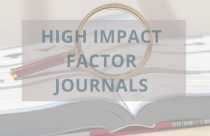Is Overpromoting Research by Journals like Nature, Cell, and Science Damaging Science?

Every scientist dreams of writing a groundbreaking research paper. Perhaps the discovery of a new form of carbon, high-temperature superconductors, or room temperature fusion. Top journals want these papers too, since a headliner like these will attract more readers and more citations. No one wants to reduce the number of breakthroughs, but the desire for headlines also has a troubling side effect—overhyping articles.
Headliners: Breakthroughs or Hype?
Top journals such as Science, Nature, and Cell are sometimes accused of over promoting research content to make articles seem more significant than they really are. Anyone who has leafed through magazines at a newsstand knows where this could lead—lurid headlines on the cover backed up by the flimsiest content inside. The danger goes beyond misrepresentation of an article’s importance; authors might be tempted to go beyond exaggeration into sloppy research that may distort the science or even venture into fabrication. Peer review is supposed to prevent this but often doesn’t. Buckyballs and high temperature ceramic superconductors were real, room temperature fusion was not. Neither was a claim that stem cells were produced from cloned human embryos, although Science made this a cover article in 2005. This stem cell article turned out to be a fraud and was retracted but only after almost ten years had passed.
Is Self-Regulation a Myth?
Journals and researchers are supposed to be kept honest by the threat of exposure, just as bankers are deterred from bad lending practices by the possibility of losing money. But self-regulation has never worked in business. Human nature can always find reasons to explain why the bubbles of the past bear no relation to the boom times of the present, and those involved march cheerfully on towards the precipice. Is there reason to think that self-regulation will work better in research and scientific publishing? Maybe. A recent Nobel Prize winner announced that he is fed up with the hyping in luxury journals and will no longer publish in them. He thinks open access journals are a better option (he edits several), since they don’t take money from readers and don’t have the same incentives to catch their eyes with flashy hype.
What Can We Do?
Although most of us can’t edit a journal to our standards we can all spread the word on journals that don’t meet out standards. If enough people write blogs and post complaints, word will spread to the scientific community. When authors begin boycotting flashy journals in favor of those with less hype and more content, we may see journals put self-regulation in action.









